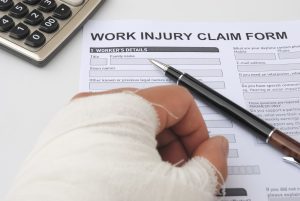Are There Death Benefits under New Jersey’s Workers’ Compensation Laws?

When you’ve been hurt on the job, you naturally expect that you’ll be entitled to workers’ compensation benefits. But what happens when your loved one dies from injuries suffered at work, or from a work-related illness?
Under New Jersey law, when a person dies in a work-related accident or as the result of an occupational illness, certain individuals related to or dependent upon the decedent have the right to recover up to 70% of his or her average weekly wage (AWW) for the 52 weeks immediately prior to their death. For purposes of the law, the death will be treated the same as a permanent total disability, entitling beneficiaries to payments for up to 450 weeks. There are some statutory limits to the amount that can be paid.
Under the New Jersey workers’ compensation laws, qualified dependents automatically include the surviving spouse and any biological children who lived with the deceased at the time of death. Anyone else seeking to qualify as a dependent must prove actually dependency status (at the time of death) to the workers’ compensation judge. Furthermore, if a surviving spouse or natural child was not part of the deceased’s household at the time of death, that person must also provide evidence of dependency. The law considers a biological child a dependent until age 18, or until age 23, if the child remains in school. Offspring with physical or mental disabilities may qualify for additional benefits.
The law also requires that the workers’ compensation insurance company pay up to $3,500 in funeral and burial expenses for a work-related death. Those benefits are payable to whoever has legal responsibility to pay the funeral expenses, whether it’s an individual or the estate.
Contact Us
At Taylor & Boguski, we bring more than 70 years of combined legal experience to injured people throughout New Jersey. For a free initial consultation, contact our office online or call us at 856-200-8989.



